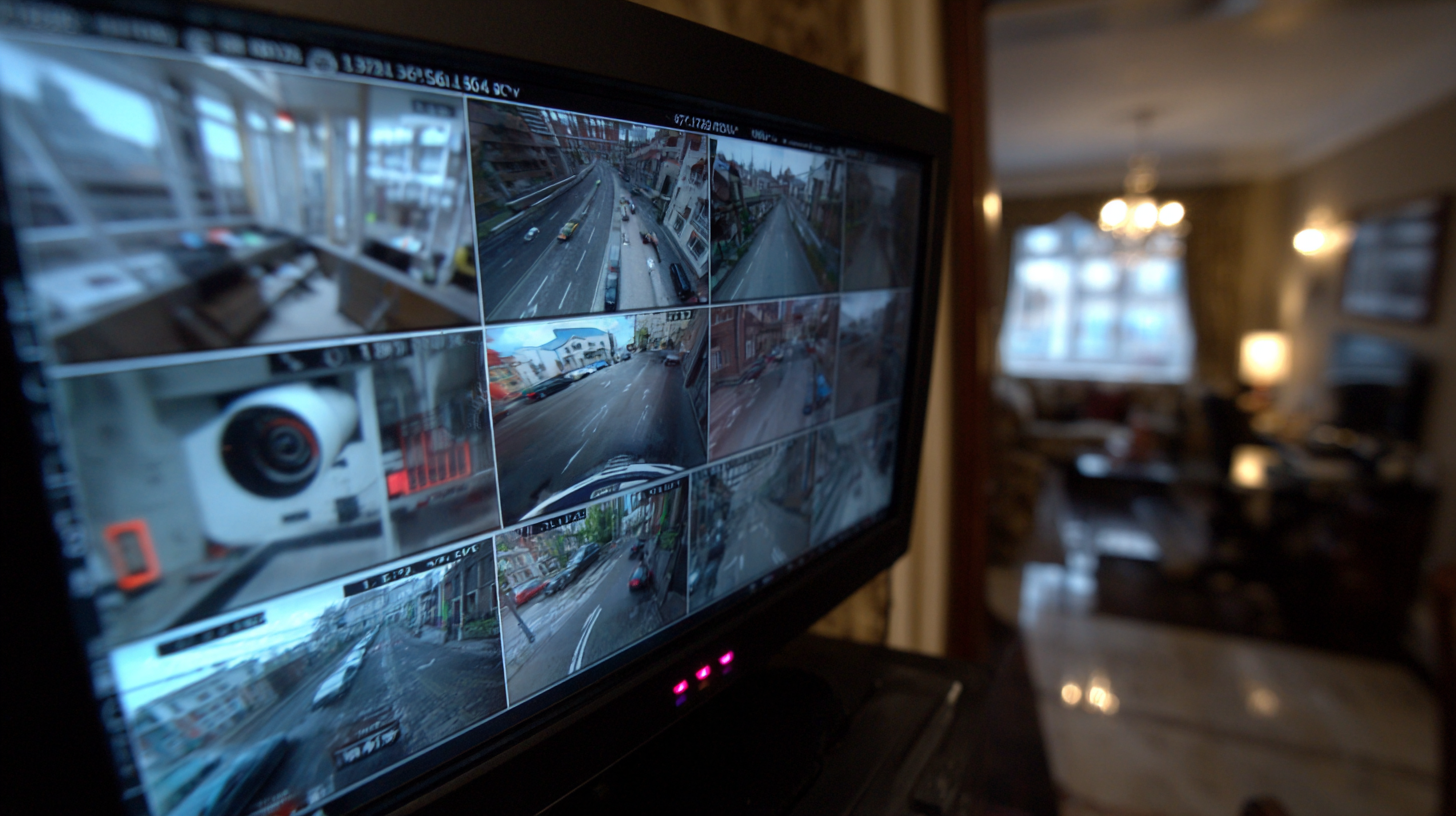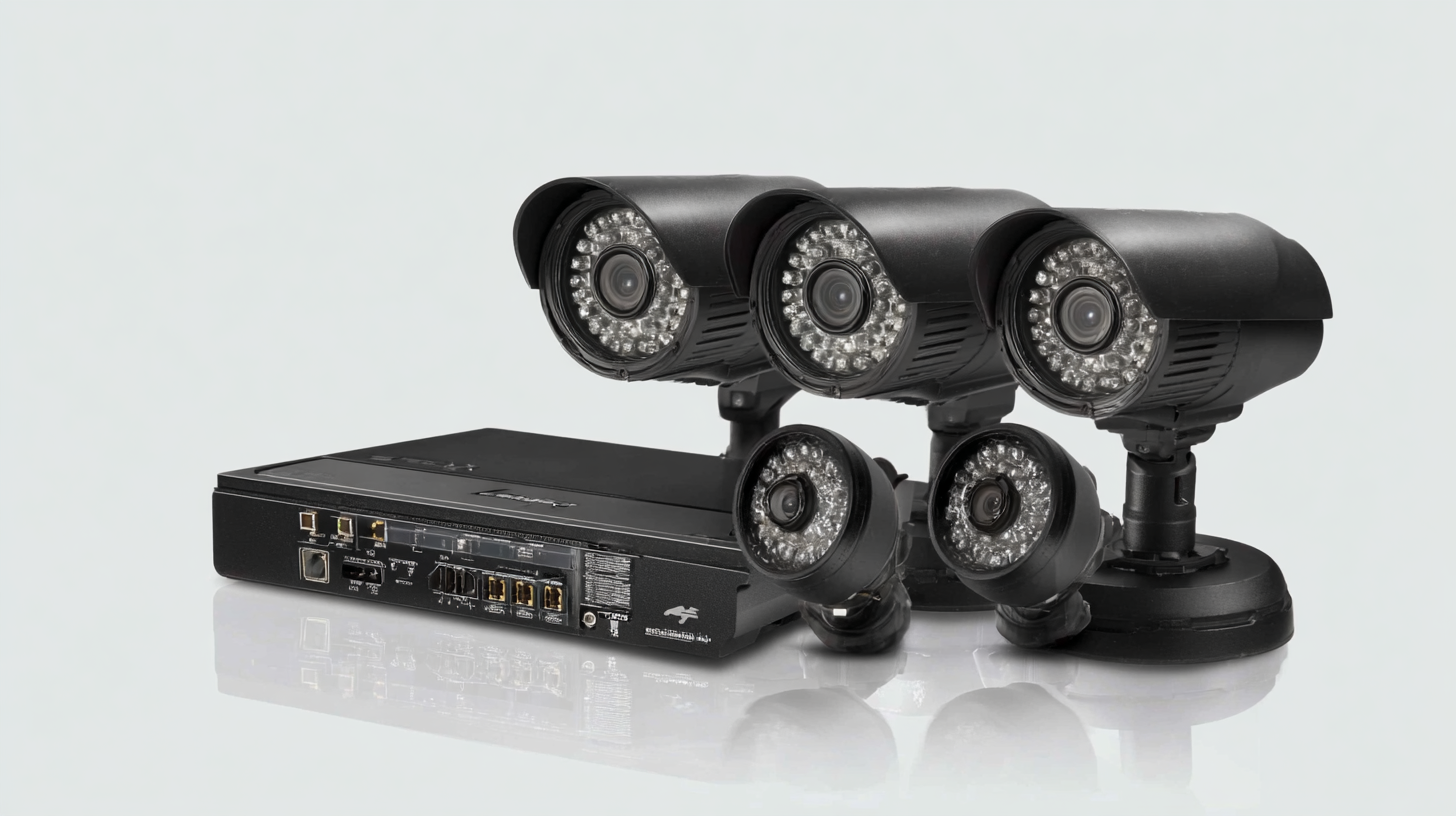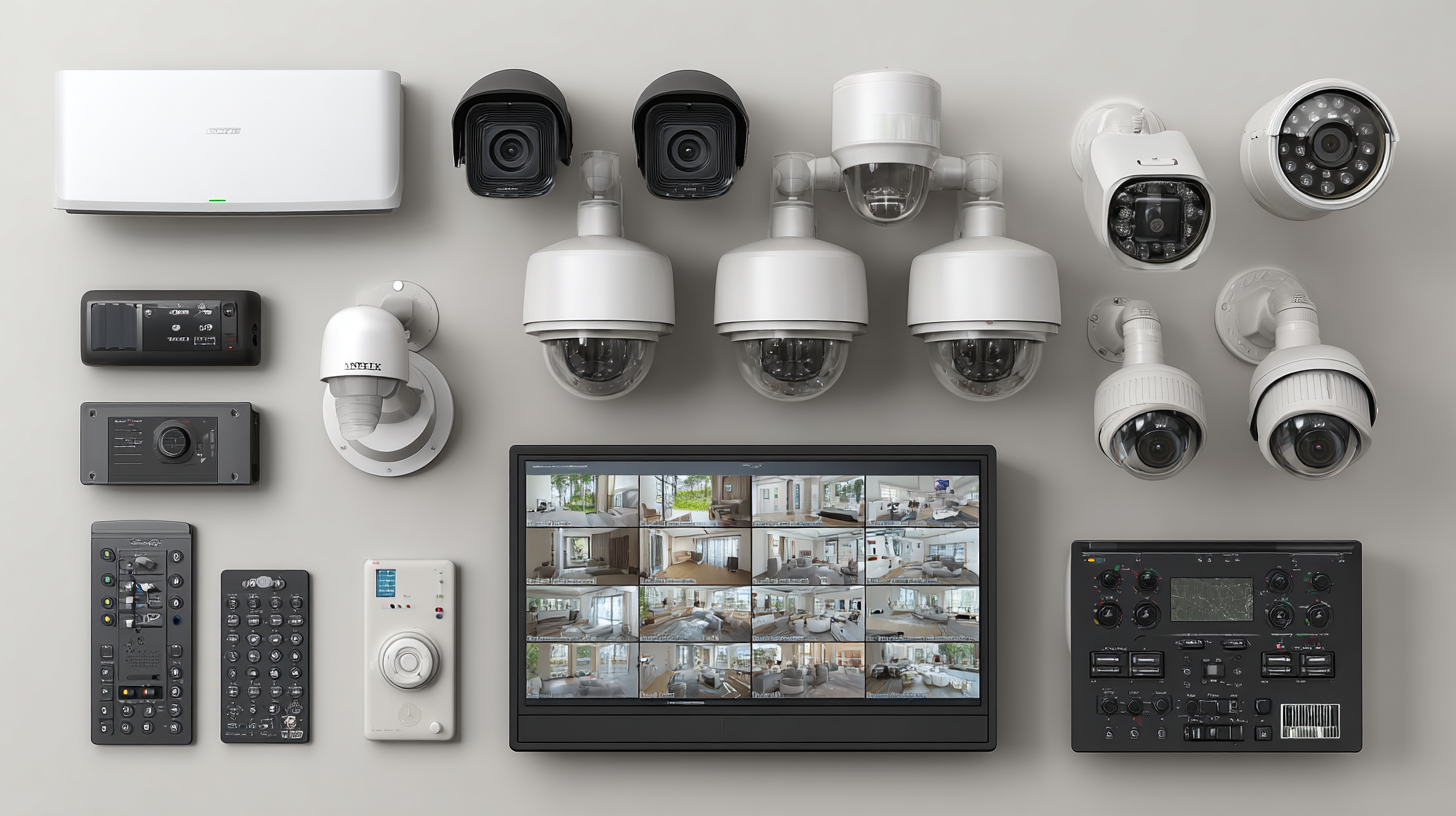Blog
Understanding the Challenges of Choosing the Right Home CCTV System
As concerns about home security continue to rise, selecting the right Home CCTV System has become increasingly crucial for homeowners. According to a recent industry report by MarketsandMarkets, the global market for home surveillance systems is expected to reach $78.9 billion by 2025, reflecting a significant shift towards smart home technologies. However, with a plethora of options available, ranging from basic cameras to advanced AI-driven systems, homeowners often face challenges when navigating through the features and functionalities. Factors such as image quality, installation complexity, data storage solutions, and integration with other smart devices need careful consideration.

This blog will explore real-world applications of various Home CCTV Systems, as well as practical guidance on how to select the best solution tailored to individual security needs, ensuring peace of mind in today’s unpredictable world.
Identifying Your Security Needs: Key Considerations for CCTV Systems
Choosing the right home CCTV system requires a clear understanding of your security needs and the unique challenges that come with different technologies. With advancements in AI and surveillance technology, homeowners must evaluate the balance between security and privacy. According to the 2025 Guide to Home Security Systems, 70% of homeowners prioritize real-time monitoring features, while more than half remain concerned about data privacy and potential misuse of surveillance footage. This highlights the critical need to align your choice of CCTV system with your specific requirements.
Tip: When assessing your security needs, consider factors like coverage area, resolution, and storage solutions. A system with both outdoor and indoor cameras can provide comprehensive monitoring. Additionally, choose systems that allow you to customize settings and manage access to footage, enhancing your control over privacy.
Furthermore, the integration of features like facial recognition brings both security benefits and privacy concerns. It's essential to stay informed about the implications of such technologies. Many consumers may not realize that 65% of cities are adopting privacy policies related to surveillance technology, which can influence your purchasing decision.
Tip: Always check for compliance with local privacy regulations when selecting a CCTV system. This ensures your investment not only protects your home but also respects your and your community's privacy rights.
Understanding the Challenges of Choosing the Right Home CCTV System
This chart illustrates the key considerations homeowners take into account when selecting a CCTV system based on a survey of security needs. The data showcases the percentage of respondents prioritizing different features such as video quality, storage options, cost, and ease of installation.
Types of CCTV Cameras: Choosing the Right One for Your Home
When selecting a CCTV system for home security, it's essential to understand the different types of cameras available to ensure you make the right choice. Common options include dome cameras, bullet cameras, and PTZ (pan-tilt-zoom) cameras. Dome cameras are discreet and ideal for indoor use, while bullet cameras are excellent for outdoor surveillance due to their visibility and durability. PTZ cameras offer the advantage of remote control, allowing you to focus on specific areas as needed.
**Tips:** Always consider the resolution of the cameras; higher resolution means clearer images, which can be crucial during an incident. Additionally, think about whether you need night vision capabilities, as many break-ins occur after dark. Furthermore, ensure the cameras have adequate weatherproof ratings if planning to install them outside.
Another critical factor to consider is the camera's field of view. Some cameras have a wide-angle lens that can cover more area, reducing the number of cameras you need to install. It’s also wise to evaluate the integration capabilities with your home network or security system, ensuring you can easily monitor feeds from your smartphone or computer.
Understanding the Challenges of Choosing the Right Home CCTV System - Types of CCTV Cameras: Choosing the Right One for Your Home
| Camera Type | Resolution | Field of View | Night Vision | Price Range |
|---|---|---|---|---|
| Dome Camera | 1080p | 90° | Yes | $100 - $200 |
| Bullet Camera | 4MP | 75° | Yes | $150 - $300 |
| PTZ Camera | 4K | 360° | Yes | $300 - $700 |
| Cylindrical Camera | 720p | 65° | No | $50 - $150 |
| Wireless Camera | 1080p | 80° | Yes | $70 - $200 |
Field of View and Resolution: Understanding Their Impact on Security
When selecting a home CCTV system, two critical factors to consider are field of view and resolution. The field of view determines how much area the camera can capture. A wider field of view allows a single camera to monitor larger spaces, reducing the number of cameras needed for comprehensive coverage. However, this can lead to a compromise in detail. Cameras with narrower fields of view can provide more focused coverage of specific areas but may leave blind spots.
Resolution is equally important, as it defines the clarity and detail of the footage captured. Higher resolution cameras produce sharper images, making it easier to identify faces, license plates, or other details that could be crucial in a security incident. However, higher resolution also requires more storage space and bandwidth, which can impact the overall system performance. Balancing these two factors is essential for creating an effective home security setup that meets individual monitoring needs without overextending resources.
Wired vs. Wireless CCTV Systems: Pros and Cons for Home Use
When choosing a home CCTV system, understanding the pros and cons of wired and wireless options is crucial for ensuring your safety and convenience.
 Wired CCTV systems often offer robust security, reliability, and higher video quality, making them ideal for larger homes. However, installation can be time-consuming and may require professional help, as running cables through walls and ceilings can be challenging.
Wired CCTV systems often offer robust security, reliability, and higher video quality, making them ideal for larger homes. However, installation can be time-consuming and may require professional help, as running cables through walls and ceilings can be challenging.
On the other hand, wireless CCTV systems provide flexibility and ease of installation, perfect for homeowners who prefer a DIY approach. They're often more affordable and allow for easier relocation if you decide to rearrange your home. However, it's important to consider potential interference from other wireless devices and ensure a strong Wi-Fi signal for optimal performance.
Tips for Choosing the Right System:
Consider your specific security needs and home layout before deciding. If you have a larger property, a wired system may prove more reliable in the long run. For smaller homes or renters, wireless options might be more practical. Always prioritize systems that offer encryption and secure remote access to protect your footage from unauthorized access.
Integrating Smart Technology: Enhancing Your CCTV System with IoT
Integrating smart technology into home CCTV systems is transforming the landscape of home security. With the rise of the Internet of Things (IoT), homeowners now have access to advanced features that enhance both convenience and effectiveness. According to a report by Markets and Markets, the global smart security market is projected to reach $73.6 billion by 2023, growing at a compound annual growth rate (CAGR) of 28.6%. This rapid growth underscores the increasing demand for smart integration in security solutions.

Modern CCTV systems equipped with IoT capabilities allow for real-time monitoring and control, improving responsiveness to potential threats. Features such as remote viewing, motion detection alerts, and cloud storage are now commonplace. A recent survey by Statista revealed that 62% of respondents feel more secure with smart home technology. Furthermore, the integration of artificial intelligence (AI) into these systems enhances their ability to distinguish between normal activities and potential intrusions, thereby reducing false alarms and increasing overall efficiency. This intelligent approach not only protects homes better but also ensures peace of mind for occupants.
